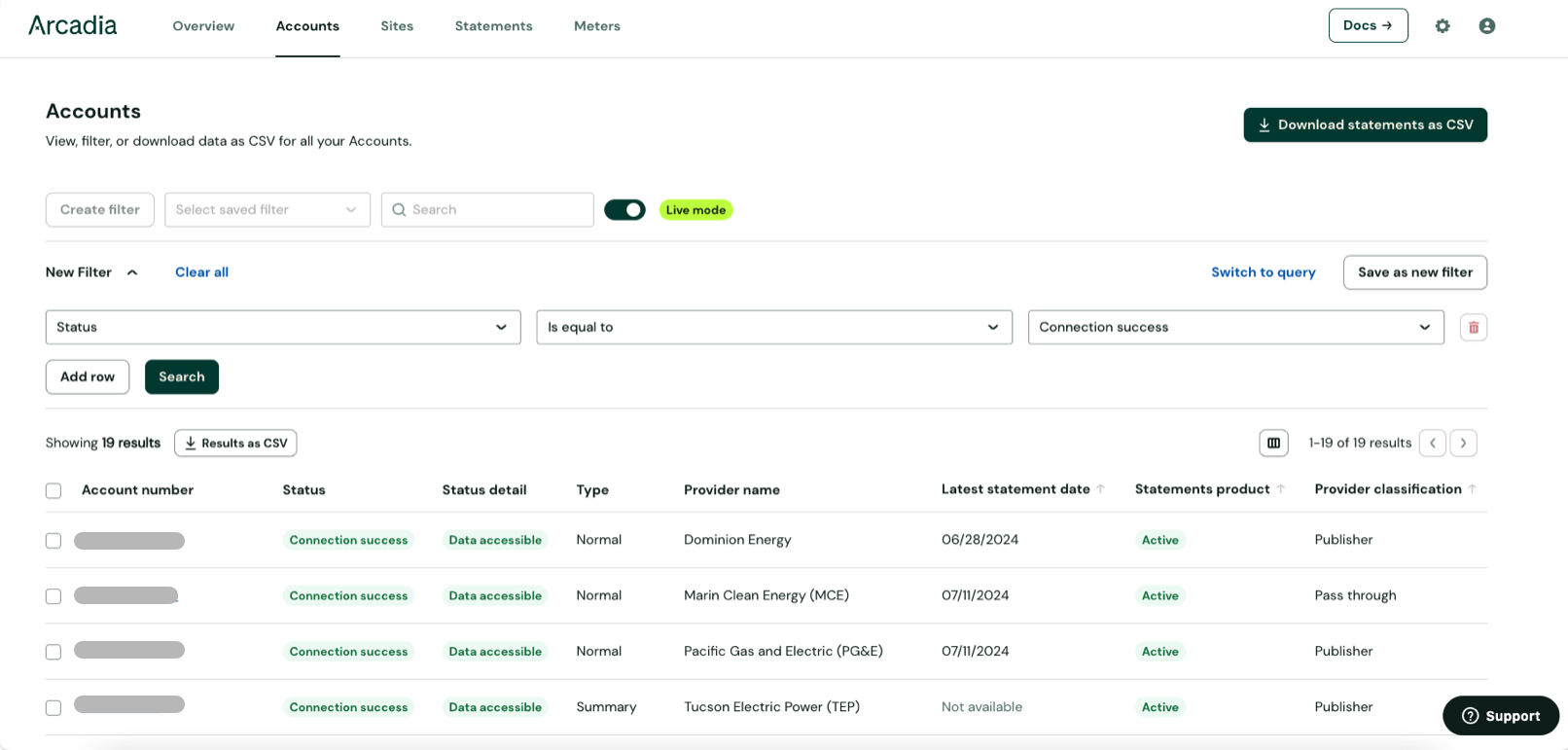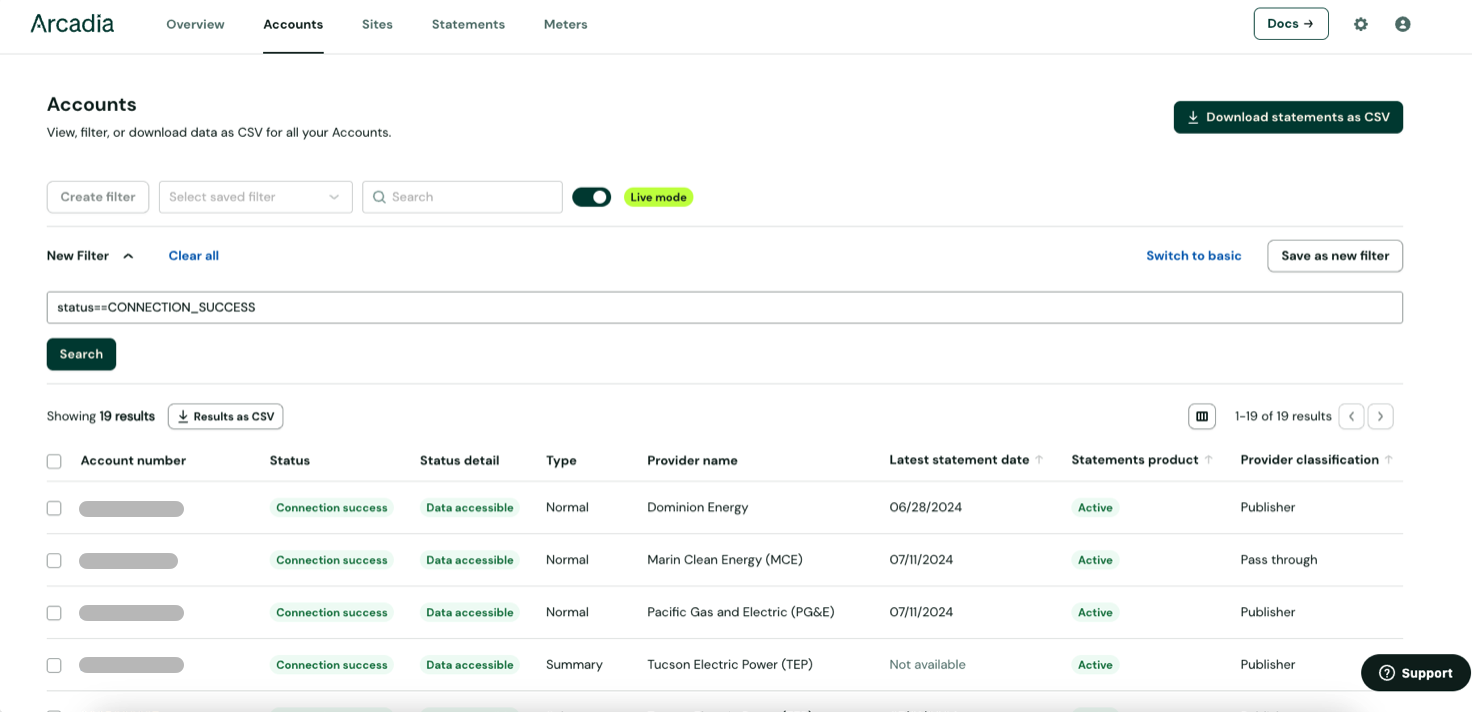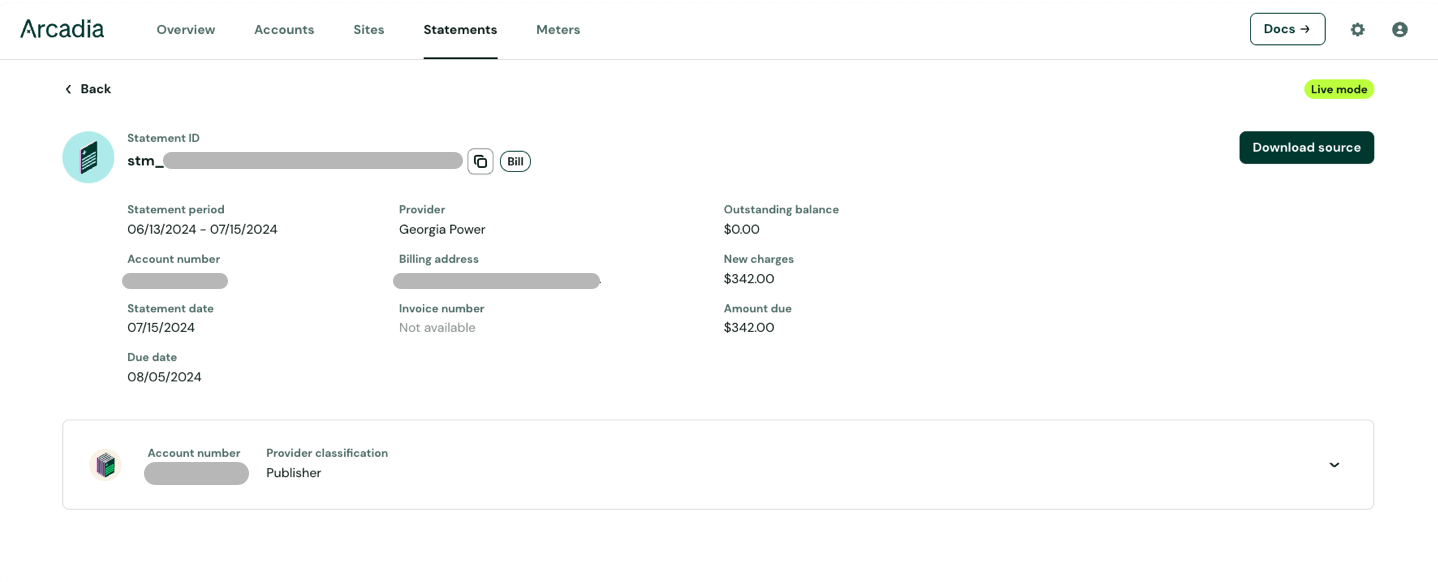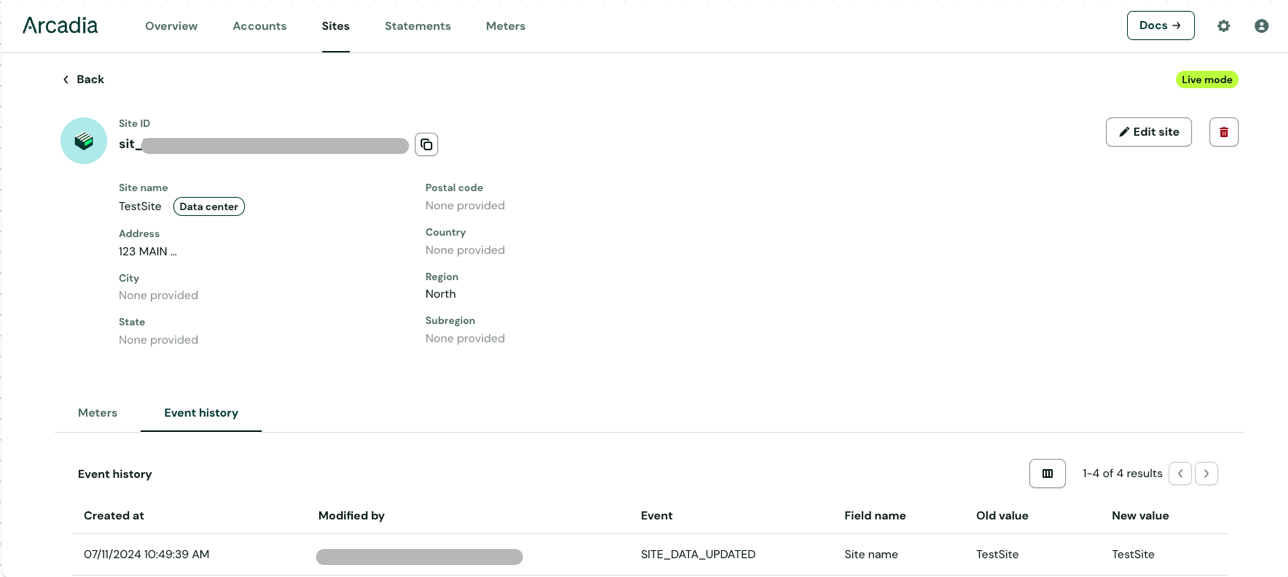Advanced Search and Triage
A walkthrough of the search and filter functionalities on Dashboard.
Overview
The Dashboard interface supports three types of data exploration: searching, basic filters, and query filters. These data exploration tools are available across all instances of tabular data in the Dashboard: Credentials, Accounts, Meters, Statements, Uploaded bills, Sites, and Team members.
- Searching is useful for ad hoc searches where you have a simple search term you want to search for (like a Provider's name, an Account number, a Meter number, etc.)
- Basic filtering is a point and click approach to constructing a more complex search
- Query filtering is an RSQL approach (like the API uses) for the most technical but powerful form of searching
Repeatability
For any set of basic or query filter results, you can save the filter to use again at a later time. You can also edit and delete filters using the filter manager UI.
Downloading
Additionally, you can download results with your selection of visible columns as a CSV for any set of results on the Credentials, Sites, Accounts, Statements, Meters, Bill Uploader, or Team Members page.
Search and Filter Limitations
Arcadia customers typically have vast amounts of data in the platform so there are some limitations to the search bar for performance reasons.
- Searching is limited to the type of entity you're searching for. For example, you can't search for Credentials on the Meter page.
- Not all API fields of an entity are searchable. You can see the searchable fields by clicking the the button above the table to edit visible columns. Hidden columns are included in the search.
- The platform currently returns a maximum of 10,000 results.
- Searches will only find matches on prefixes. For example, if you have a Site with name "County Hospital" and you search "County" in the search term, it will return your site. However, if you search "ounty" in the search term, it will not return your site. For fields that are multiple terms (like Provider names), the search term has to match a prefix on any of the terms. For example, you could search "Dieg" to match with the "San Diego Gas & Electric" Provider.
- Currently, any filter made by a user will be local to their browser. Filters are not shared between users in an org and if you clear your browser's local storage or use a different browser, the filters you've made will not be available. You can save the query locally if this is a concern.
Searching
You can use the search bar to enter any term that you'd like to search across all searchable fields for the type entity you're interested in (eg. Meter, Credential, Account, etc.).
Basic filtering
Basic searching and filtering allows you to return data by selecting searchable fields for a given API entity (Site, Account, Credential, Meter) for up to 5 drop down boxes. The results will be paginated on the Dashboard, but you can select "Results as CSV" to download results.

Filtering with Query
Query searching and filtering allows you to return data by writing an RSQL query in the same fashion as you would for the API. Filtering by query has no imposed limits on searchable fields you can search on for a given entity (Site, Account, Credential, Meter). Searchable fields for each entity can be found on the API documentation for each endpoint listing out the entity under the query params section. The results will be paginated on the Dashboard, but you can select "Results as CSV" to download results.

Saving filters
For analysis results needed on a regular basis, you can save a filter to repopulate search parameters quickly and consistently. Saved filters are accessible only by the user who created it currently and are saved to your local storage.
Downloading CSV results
There are two ways to receive your downloaded CSV results.
- Email download link delivered to your inbox (suggested for larger requests)
- Wait for data to download in the browser (suggested for smaller requests)
Statement Details
The Statement details page shows both high level and detailed Statement level information directly in the Dashboard. For each Statement, each Account will have its usages and charges, as well as Meter usages and charges available in the table.
Additionally, you can select "Download source" to view the source document of the Bill.

Event Histories
Event history is available for Account, Meter, Site, and Credential entities. You can see a table of any given Account, Meter, Site, and Credential by navigating to the corresponding high level tab at the top of the page, then selecting the "Event history" tab on the card.
For each change, you will be able to see the impacted field as well as the old value and the new value.

Updated 7 months ago
